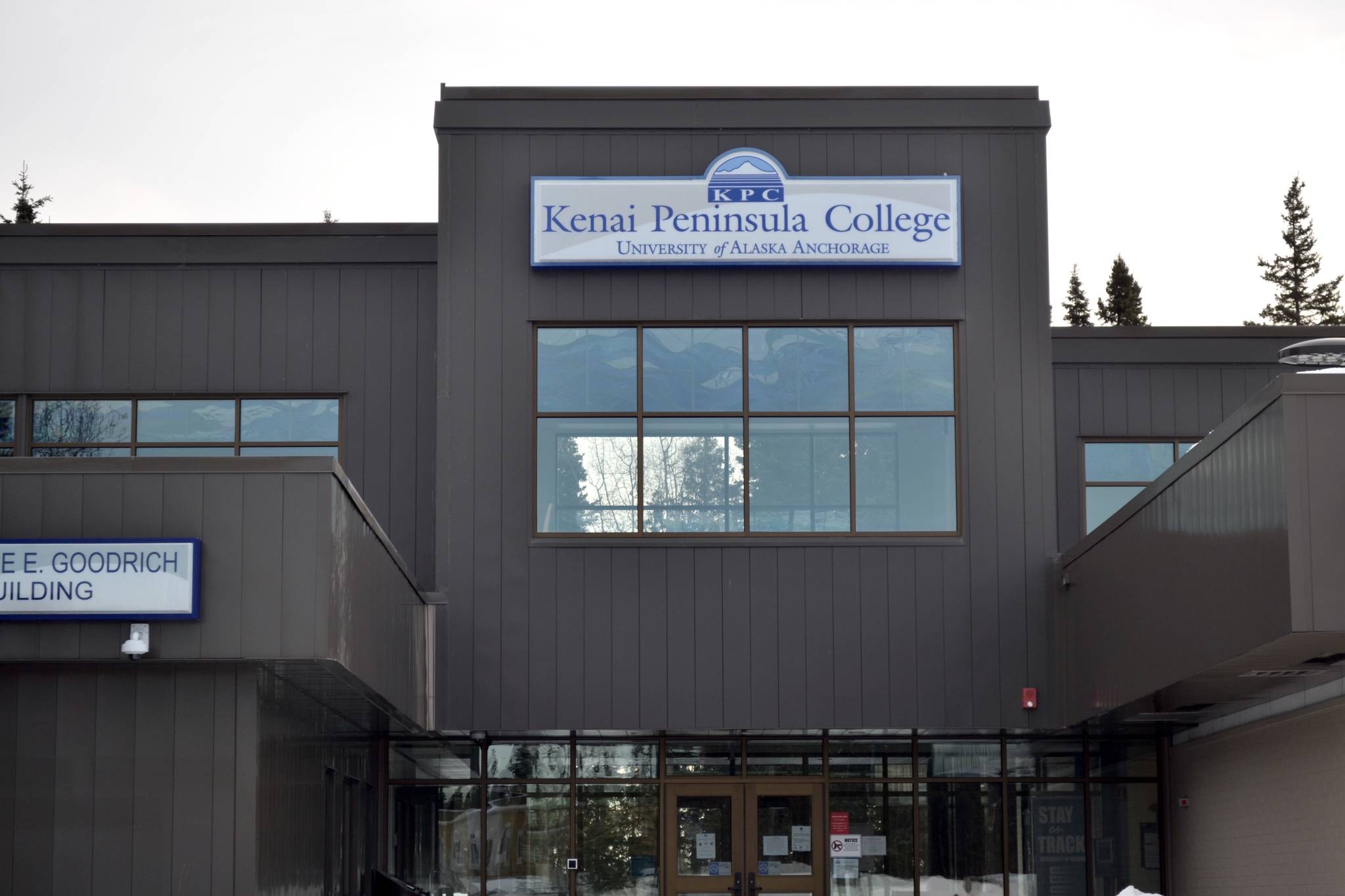Graduating with an associate’s degree in process technology and instrumentation during a time of high unemployment and low oil prices, Brenner Musgrave was still able to land a job.
Musgrave, a 2015 Connections graduate, graduated from Kenai Peninsula College in May and is now working locally as a line locator for Enstar Natural Gas Company.
“I know several of my friends who are students in other states had to return home because of the pandemic,” Musgrave said. “Normally they come home and do guiding and fishing but they can’t. There’s just not as much demand. People aren’t hiring.
“For me to have a job right away, when people aren’t finding jobs and can’t work, I feel very fortunate that my degree is essential.”
The price of a barrel of West Texas Intermediate crude oil was at $61.18 when 2020 began, but plunged sharply due to the coronavirus pandemic. West Texas Intermediate was trading Monday at $37.20 per barrel.
The state also has seen high unemployment due to the coronavirus pandemic. According to the state Department of Labor and Workforce Development, Alaska’s seasonally adjusted unemployment rate was 12.9% in April after being at 5.2% in March.
Jeffrey Laube, associate professor of process technology at Kenai Peninsula College, said the pandemic has provided short-term challenges for process tech graduates, but long term the future is still bright.
“In January and February, companies were coming on campus looking at hiring just about everyone we had,” said Laube, who has been at KPC since 2009. “By the time of the pandemic, just about every one of those things was canceled.”
Laube said the pandemic has led to internships being canceled and Marathon Petroleum’s Kenai Refinery delaying turnaround.
Jake Eubank, a 2015 graduate of Kenai Central, started the KPC process technology program in January and will graduate in May 2021. He had an internship lined up with Alyeska Pipeline Service Company this summer, but that fell through when the pandemic hit.
“It was totally understandable they canceled internships for the summer,” Eubank said. “They couldn’t bring new hires into the pump stations. Companies don’t want the big risk of coronavirus outbreak, especially if you’re Alyeska Pipeline.”
Eubank is living with his parents this summer and doing a lot of fishing. He’s happy to have the opportunity after not having a summer to fish for about 10 years. He called the coronavirus a speed bump.
“I feel like it’s a pretty safe and solid prospect there’s a lot of job opportunities that will come about pretty soon in the oil field for process technology,” he said. “A lot of the previous generation will be retiring once this all calms down and they’ll need to fill those jobs.”
Laube said a major factor keeping graduates from finding employment is the volatility of the stock market.
The professor said the KPC program trains operators.
“We are the people who make the facilities run,” Laube said. “That number doesn’t change based on the price of oil or based on whether there is a pandemic. That number is real consistent.”
Laube said companies will change the number of positions devoted to middle management when the price drops, or the number of engineering projects, but not operators.
“It’s a legacy job and a durable job to train for, they’re going to hire when somebody has to leave,” Laube said. “What makes them leave is generally the motivation to retire.”
Laube said fluctuations in the stock market, which have been common during the pandemic, make people uneasy about retiring.
The professor added the number of facilities operating in Alaska, the number of process tech graduates and the number of current operators at retirement age still adds up to great employment prospects for graduates.
Laube said with Hilcorp set to take over BP’s assets on the North Slope this summer, operator jobs could be available when some decide the transition is a good time to retire.
“It’s a blip, what has happened this year,” Laube said of the pandemic. “That blip is going to be diminished sooner or later when people who were planning on retiring in January pull the plug and companies actually need to hire.
“The number of graduates will actually be short on what the industry needs.”
Laube said enrollment is down in the two-year process tech program at KPC, but he believes graduates will have the skill set that will get them jobs that last decades. Even with the pandemic and potential action on climate change, Laube said the oil and gas industry is not going anywhere.
“There is a global push for reducing the amount of petroleum use but I don’t see that that transition is going to be quick or instantaneous,” Laube said. “People are going to need energy and all the energy that’s been found — companies want to sell that energy and get it to the marketplace.”
That squares with Musgrave’s experience in trying to find a job. He said he has heard of a number of internships put off by the pandemic.
“It definitely threw a wrench in things,” Musgrave said. “One of the people I graduated with had an internship lined up and I think ended up finding something else for the summer. He’s hoping for an opening in the fall.”
Musgrave said he’s heard that the temporary positions that lead to full-time jobs haven’t been as available because social distancing means only so many people can be on a crew.
The 2020 grad also said it should be only a matter of time for his fellow graduates.
“I still got hired even though a lot of people have been put out of work,” Musgrave said. “Natural gas is something you really can’t put off. There’s stuff you need to get done.”

